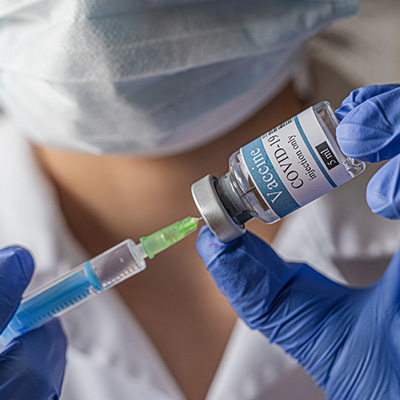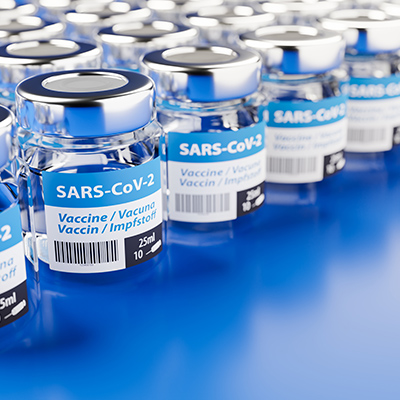August 14, 2020 -- Pharmaceutical giant Pfizer is making progress on BNT162b1, a COVID-19 vaccine candidate that is undergoing development and for which the U.S. government has secured access to 300 million doses in 2021. The results of the phase I/II clinical trials were published in Nature on August 12.
RNA vaccine platforms that use messenger RNA to elicit immune responses have enabled rapid vaccine development in response to the pandemic. RNA vaccines provide flexibility in the design and expression of vaccine antigens that can mimic antigen structures and expression during natural infection. Moreover, they are considered safe because RNA is only transiently expressed and metabolized, and subsequently eliminated by natural mechanisms.
The BNT162b1 vaccine candidate, developed by Pfizer and BioNTech, incorporates nucleoside-modified RNA and encodes the receptor-binding domain (RBD) of the SARS-CoV-2 spike protein, a key target of virus-neutralizing antibodies. The RBD antigen expressed by the vaccine candidate is modified by the addition of T4 fibritin-derived foldon trimerization domain that increases its immunogenicity. The vaccine RNA is formulated in lipid nanoparticles for efficient delivery into cells after intramuscular injection.
In the phase I/II trial, between May 4 and June 19, 45 healthy adults were randomly vaccinated with either 10 µg, 30 µg, or 100 µg of BNT162b1 or placebo. Participants at the 10- and 30-µg levels also received a second dose of the vaccine after 21 days.
The researchers found that the vaccine candidate was generally well-tolerated and safe, with only mild side effects that increased with dose level in the seven days after vaccination.
To determine immunogenicity, the researchers determined RBD-binding immunoglobulin G (IgG) concentrations and SARS-CoV-2-neutralizing titers at baseline (before vaccination), at seven and 21 days after the first dose, and at seven and 14 days after the second dose of the BNT162b1.
By 21 days after the first dose of the vaccine, the concentrations of IgG for all dose levels was greater than that found in convalescent serum from recovered patients. For those participants who received a second dose, there was a significant increase in RBD-binding antibodies, with the 30-µg group displaying much stronger immune responses than the 10-µg group.
For these groups, the antibody response was eightfold stronger at 10 µg and 50-fold stronger at 30 µg than that found in convalescent serum. Those who received a single dose at 100 µg did not see increases in antibodies beyond 21 days after vaccination.
The authors attributed the higher RBD-binding IgG response by the vaccine relative to convalescent serum to the RNA vaccine design, which has exposed epitopes on the RNA-expressed RBD immunogen.
For all dose levels, small increases in neutralizing antibodies were observed after 21 days of initial vaccination. Again, a second vaccine dose (at both the 10- and 30-µg levels) produced significantly greater serum neutralizing antibodies after both seven and 14 days. These responses were 1.9-fold at 10 µg and 4.6-fold at 30 µg higher compared to convalescent serum.
Comparing vaccine-induced SARS-CoV-2 neutralization titers to those from the sera of convalescent humans provides a benchmark to track the magnitude of vaccine-elicited responses and the vaccine's ability to provide protection.
The researchers noted that efficacy of the vaccine will be determined in an upcoming phase III trial. A related vaccine that encodes the full-length spike immunogen is also being tested in a parallel trial in Germany, which is assessing additional immune responses, including neutralizing responses against variant strains and cell-mediated responses.
Do you have a unique perspective on your research related to vaccine development or infectious diseases? Contact the editor today to learn more.
Copyright © 2020 scienceboard.net









